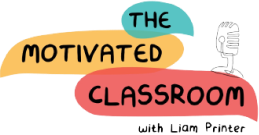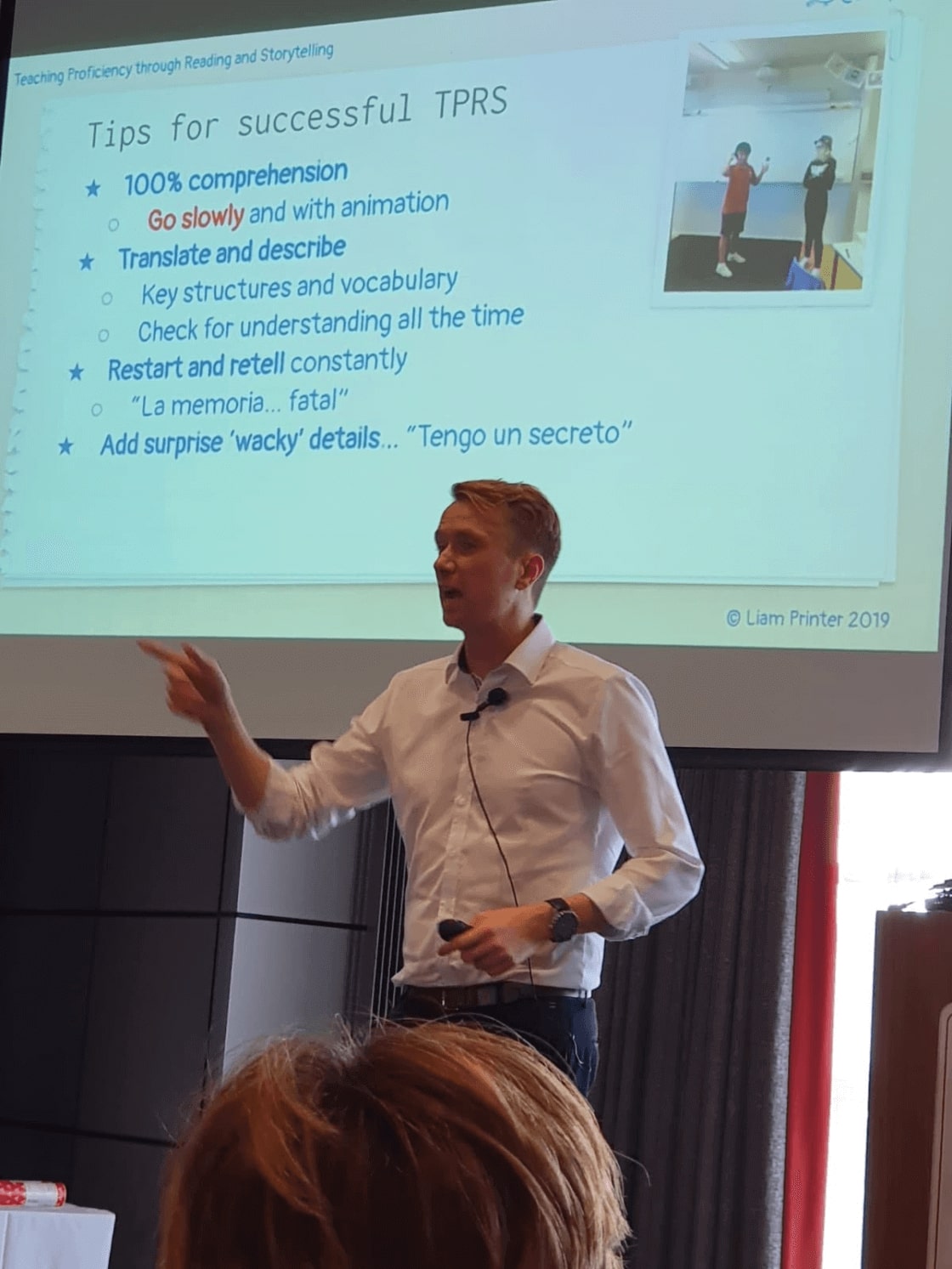The 'MLIE' actually stands for ‘Multilingual Learning in International Education’ but this ECIS MLIE conference genuinely was a lesson in excellence across the board, from start to finish. I had heard wonderful things about this global coming together of language teachers, students and policy makers from my amazing colleague @polyglotteacher and others who attended the previous event in 2017 when Dr Stephen Krashen was one of the keynote speakers. So you can imagine my reaction when the wonderful Susan Stewart, ECIS Multilingualism Lead, invited me to speak at the main conference and present a full day on TPRS storytelling at the pre-conference! Humbled. Anxious. Nervous. But overall, pure joy to even be considered alongside many of my bookshelf at a conference of this stature
At the previous instalment of this conference, Dr Krashen apparently divided opinions as many language teachers believe that ‘output activities’ still hold an important place in the language classroom and we do not need to only focus on ‘input’. For me at least, Krashen’s work on Comprehensible Input (CI) makes a huge amount of sense and it was only when I received training on how to properly provide compelling CI to my students through stories and other activities, that I saw a leap in both the students’ motivation, engagement and achievement as well as my own. Nevertheless, I am also open to the varied and many differing opinions held by other language teachers on the subject of acquisition and that is what I loved so much about this conference. Attendees all came with an open mind to learn from each other, appreciating that there is always more research to engage with, more examples to build upon… that quite simply, there is always more to learn.
This was precisely true of the group of 25 teachers from right across the globe who got in early and signed up for my pre-conference 1 day workshop on Teaching Proficiency through Reading and Storytelling (TPRS) before it sold out. Many of these teachers have been in the game for a lot longer than I have and many are ‘getting great results’ with methods that we were all taught with as school children. But.. they came to the workshop with a passion and desire to improved their practice. A willingness to throw out something old that isn’t working and to jump in and try something totally new that may well, at first, seem outside our comfort zone. And even better still, since the workshop took place, three separate schools have asked me to work with their teachers on developing TPRS in their school!
But why bother with TPRS or CI approaches at all if we are ‘getting good results’? Because that is not enough. As teachers of language we are also teachers of people. We all want more than just a number on a results transcript. We want to create lifelong learners who are inspired from our classes to go and try their few phrases with the local shopkeeper. Inside us all, we want to teach more than just grammar and rules (even if we as language nerds do love this stuff). We want to teach culture, music, traditions, songs and we are all natural storytellers because we are language teachers and we love to talk. We want smiles and laughter in our classroom much more than we want the correct verb ending. In my opinion, that is what brought people to this conference.
But the conference was about so much more than teaching techniques and tools to inspire. It was about the power of multilingualism and how it holds the key to unity. We had truly moving and inspirational keynotes speeches from Amar Latif, the man behind ‘Travelling Blind’ and refugee turned scholarship student at UWC, Leila. We heard about the changing face of international education from the University of Bath’s, Mary Hayden, former Head of Education Department where I am currently doing my Doctor of Education studies. We had the timely reminder from the great Dr Jim Cummins alongside the equally wonderful Mindy McCracken and Lara Rikers about the pedagogical power of allowing students to share their own unique cultural identity. We had incredible practical sessions on how to engage learners from all backgrounds by the fantastic Beth Skelton and Tan Huynh. We also had the jaw-droppingly awesome presentation by middle school students at the International School of London about their University-level research project into bilingualism. Truly inspiring what children are capable of when given the means and parameters to succeed.
For me though, I left not only with my head buzzing full of ideas, but with the important take-home point that we must encourage our students to call upon, share and utilise their home languages and cultures in our classroom much more than we currently do. As a Spanish teacher in an international school where the language of instruction is English, I fall into the trap of establishing meaning by simply translating to English as “they all speak English” but the reality is that over 60% of my students do not actually speak English at home. The research is strong that the more linguistic ‘hooks’ they have to hang the new language onto, the better they will understand and the more they will acquire. This doesn’t mean that I reduce the amount of comprehensible input I give them, as they need lots and lots of CI through reading and listening to acquire language. Rather, the conference reminded me that if I don’t at least encourage contact with their home language in my classroom, then I am forcing them to leave a part of their identity, a part of their culture, a part of themselves, at the door. This is not right. All languages that students come to us with, should be embraced, celebrated and utilised as learning tools.
Trust me, put your professional development budget aside and book yourself on to the next ECIS MLIE 'Mega Lesson in Excellence' Conference. Total game-changer.

